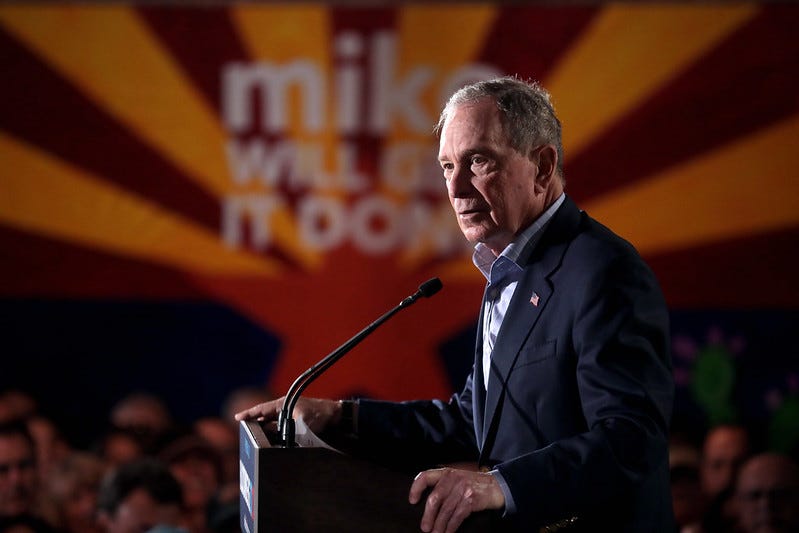Here's how Bloomberg hopes to ditch despised coal
Media mogul to spend millions to guide developing nations to renewables.

(A native of England, Matthew Diebel is a veteran journalist who has worked at NBC News, Time, USA Today and News Corp., among other organizations. Having spent his childhood next to one of the world's fastest bodies of water, he is particularly interested in tidal energy.)
He just turned 80, and it appears that Michael Bloomberg is determined to give away a good proportion of his multibillion-dollar fortune. In April, for instance, the former New York City mayor and financial information mogul, invested $200 million in two NYC charter school systems catering mainly to minority children. And last fall, he gave $43 million to his undergraduate alma mater, Johns Hopkins University, to create a center that will train city leaders and their staff from around the world on problem-solving techniques in local government.
And the spending spree continues. On Tuesday he announced a $242 million campaign to promote clean energy in 10 developing nations, reported The New York Times. The investment is part of his effort to shut down coal production in 25 countries and builds on his $500 million campaign to close every coal-fired power plant in the U.S.
In essence, Bloomberg wants to both divert emerging countries from building fossil-fueled energy plants — especially those using coal — as they rush to expand their economies. He also would like to see them close the ones they have. The money will fund programs in Bangladesh, Brazil, Colombia, Kenya, Mozambique, Nigeria, Pakistan, South Africa, Turkey and Vietnam.
“Which strategies are appropriate for each country will really be guided by the in-country partners who know them best,” said Helen Mountford, the president and chief executive of ClimateWorks, one of the organizations that will work with Bloomberg Philanthropies to develop plans. “The first approach is to identify the relevant strategies per country,” she told the paper, “and to start to identify who can help to deliver those and move those forward and get the funding to the ground.”
The strategy is based on the fact that many developing countries have fast-growing populations and economies, and rapidly increasing energy needs where there can be a temptation to employ familiar and conventional energy methods. “We have a unique opportunity to drive that energy source being renewable from the start instead of going back again in another 30 years and try and transition them out of unsustainable sources of power,” said Damilola Ogunbiyi, chief executive of Sustainable Energy for All, another organization working with Bloomberg.
With Bloomberg’s goal being to boot coal, the dirtiest energy generator on the planet, let’s hope he turns his attention — and billions — next to China and India, by far the world’s largest consumers of the black stuff.


